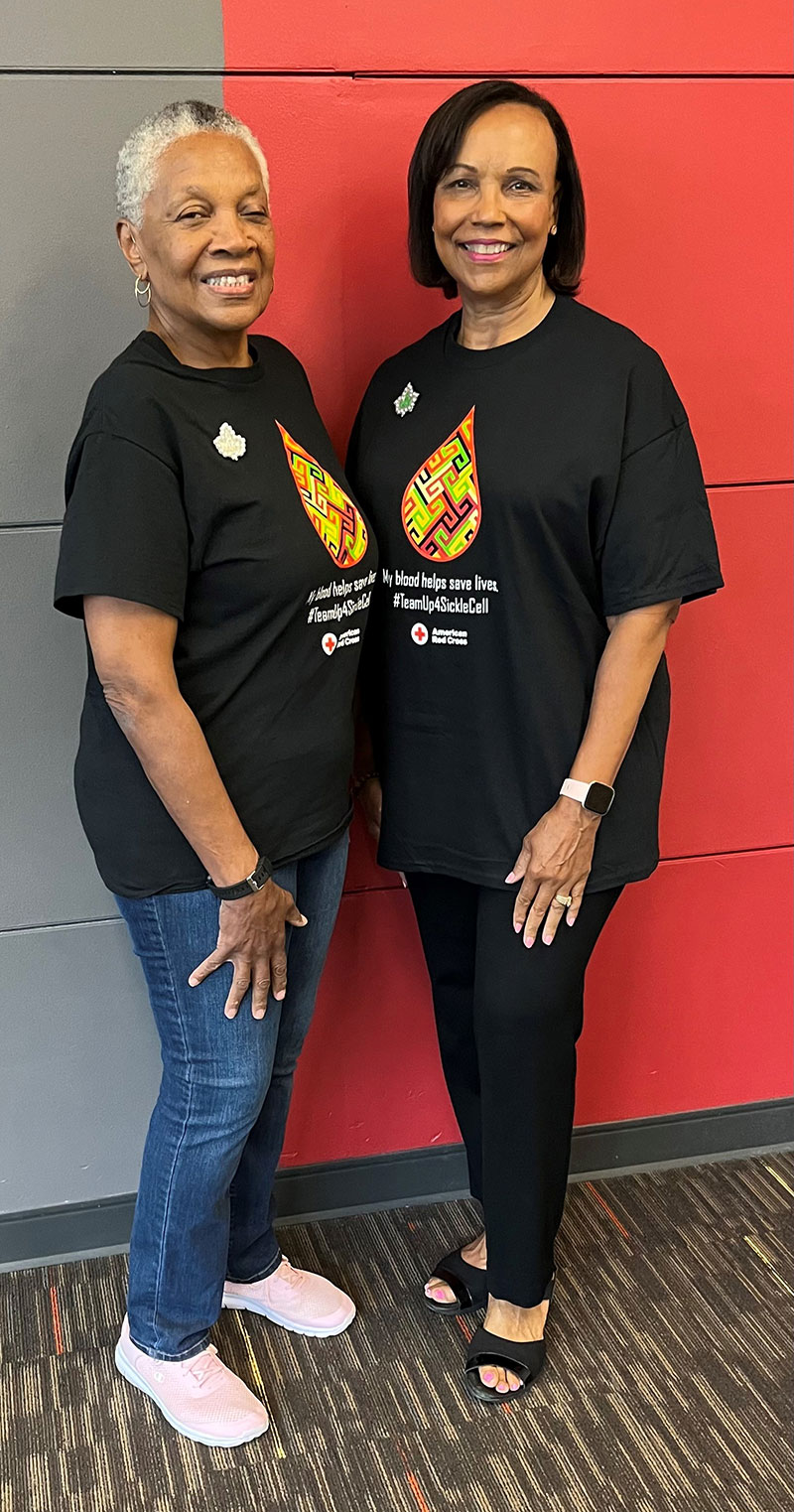
By David Olejarz, regional communications director
Rosalind McDavid and Susan Gordon-Jackson know the importance of having a robust blood supply. Not just for people fighting cancer and trauma patients in emergency rooms, but also for patients with sickle cell disease, the most common genetic blood disorder in the United States.
Both are avid blood donors and were among those who gave at an American Red Cross sickle cell drive last month.
“There’s no cure for that right now and until there’s a cure, we have to make sure there’s a blood supply for people with sickle cell and for people having surgeries and whoever needs blood,” Gordon-Jackson said.
She herself needed a blood transfusion for a medical emergency in 1983.
“I know blood saves lives and the plea for blood,” Gordon-Jackson said. “If my family had to have a transfusion, I would want blood to be there.”
The Red Cross experienced a significant blood and platelet donation shortfall in August, contributing to the current blood and platelet shortage. To ensure the blood supply recovers, the Red Cross must collect 10,000 additional blood products each week over the next month to meet hospital and patient needs.
In 2021 American Red Cross launched a national initiative to help address health disparities associated with sickle cell disease by increasing much-needed blood donations from donors in the Black community. One in three African American blood donors are a match for people with sickle cell disease.
McDavid said she was inspired to give blood by her mother who was a frequent donor. She already has in her calendar her next scheduled appointment.
“If you’re healthy, just come out and check to see if you can donate,” McDavid said. “Once you realize you can, I think you’ll be encouraged to come back.”
McDavid and Gordon-Jackson are all too familiar with the life-threatening complications associated with sickle cell. McDavid’s daughter lost a friend to the disease.
Gordon-Jackson said her cousin’s grandchildren are living with sickle cell.
“I know how important it is to make sure they have a great blood supply,” Gordon-Jackson said.
McDavid said the need for Black donors is vital. “We need to keep getting people out so they can donate and help the ones who are suffering from sickle cell,” she said.
People can donate one of three ways:
McDavid said she beams with joy when the app informs her where her donation is going.
“That makes me feel great. To know that I might be saving someone. You never know when you may need blood from someone else.”
Support all the urgent humanitarian needs of the American Red Cross.
Find a drive and schedule a blood donation appointment today.
Your time and talent can make a real difference in people’s lives. Discover the role that's right for you and join us today!